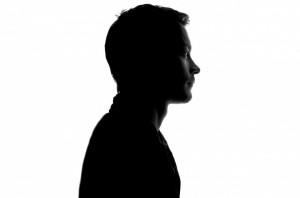There are higher concentrations of people with mental illness at both ends of the perceived power spectrum; in those who feel supremely powerful and in those who feel totally helpless, according to new research from the University of California, Berkeley.
Researchers found that one’s perceived social status (or lack thereof) is at the heart of a wide range of mental illnesses. A perception of having no power was linked to symptoms of anxiety and depression, while very high levels of pride were linked to bipolar disorder and narcissism.
“We found that it is important to consider the motivation to pursue power, beliefs about how much power one has attained, pro-social and aggressive strategies for attaining power, and emotions related to attaining power,” said lead author Dr. Sheri Johnson, a University of California Berkeley psychologist.
“People prone to depression or anxiety reported feeling little sense of pride in their accomplishments and little sense of power,” Johnson said. “In contrast, people at risk for mania tended to report high levels of pride and an emphasis on the pursuit of power despite interpersonal costs.”
The study, which involved over 600 young men and women, makes a strong case for assessing such traits as “ruthless ambition,” “discomfort with leadership” and “hubristic pride” to understand psychopathologies.
The researchers looked at how study participants fit into the “dominance behavioral system,” a construct in which humans and other mammals assess their place in the social hierarchy and respond accordingly to promote cooperation and avoid conflict.
It is well-known that feelings of powerlessness and helplessness weaken the immune system, making one more vulnerable to physical and mental illness. Conversely, an inflated sense of power is among the behaviors associated with bipolar disorder and narcissistic personality disorder, which can be both personally and socially damaging. 
For this latest study, 612 young men and women rated their social status, propensity toward manic, depressive or anxious symptoms, drive to achieve power, comfort with leadership and degree of pride, among other measures.
The participants were gauged for two distinct kinds of pride: “authentic pride,” which is based on specific achievements and is related to positive social behaviors and healthy self-esteem; and “hubristic pride,” which is defined as being overconfident, and is correlated with aggression, hostility, and poor interpersonal skills.
To test for tendencies toward hypomania, a manic mood disorder, participants ranked how strongly they agreed or disagreed with such statements as “I often have moods where I feel so energetic and optimistic that I feel I could outperform almost anyone at anything,” or “I would rather be an ordinary success in life than a spectacular failure.”
Overall, the findings showed a strong correlation between the highs and lows of perceived power and mood disorders.
“This is the first study to assess the dominance behavioral system across psychopathologies,” Johnson said. “The findings present more evidence that it is important to consider dominance in understanding vulnerability to psychological symptoms.”
The study is published in the journal Psychology and Psychotherapy: Theory, Research and Practice.
This article first appeared in Psych Central, 1 January 2015.






















